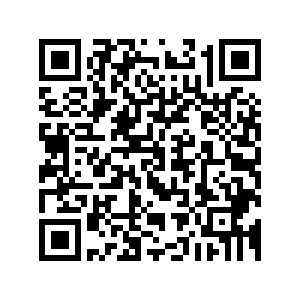WASHINGTON, June 27 (Xinhua) -- U.S. President Donald Trump has continued to lob personal insults and attacks at Federal Reserve Chair Jerome Powell in a bid to get the central bank to lower interest rates.
Frustrated with the Fed's wait-and-see attitude toward lowering interest rates, Trump has ramped up attacks against Powell in recent weeks.
Earlier this week during a NATO summit in the Netherlands, Trump hurled his latest oratory grenade at the Fed chief, who the president nominated for the position eight years ago.
"I think he's terrible," Trump told reporters during a press conference, referring to Powell.
The president called Powell a "very average mentally person," and said the Fed chief has "a low IQ for what he does."
"I think he is a very stupid person, actually," Trump said.
The president has frequently threatened to fire Powell, although most experts said such a move would be unconstitutional and unlikely to occur.
However, that has not stopped Wall Street from buzzing over the possibility that Trump could create a "shadow chair" -- someone on the inside who would challenge Powell's decisions until the Fed chair's term runs out next year.
Dean Baker, a senior economist at the Center for Economic and Policy Research, told Xinhua that Trump's public criticism of Powell is "really unprecedented."
"No one has threatened to fire a Fed chair," Baker said.
The president confirmed his list of possible replacements for Powell, including former Fed Governor Kevin Warsh, Treasury Secretary Scott Bessent and National Economic Council Director Kevin Hassett.
Trump wants lower rates because such a move would stimulate the economy and boost growth.
However, lower rates cannot simply be achieved by pushing a button.
Clay Ramsay, a researcher at the Center for International and Security Studies at the University of Maryland, told Xinhua: "Trump may not understand -- and the media certainly doesn't understand -- that the Fed chair does not make decisions alone. The Federal Open Market Committee has 12 members who meet and vote on rate changes. Powell's view is doubtless influential, but if any Chair were to seem to reject the economic evidence, that person could easily be outvoted."
Currently, many observers think that the committee would be inclined to lower interest rates soon if the administration's jumble of current and future tariff policies were not the key factor, Ramsay said.
Trump appointed Powell during his first term as president, but experts said Trump is a stickler for loyalty, and Powell has not delivered on that front.
Gary Clyde Hufbauer, a non-resident senior fellow at the Peterson Institute for International Economics, told Xinhua: "Having appointed Powell, Trump expected loyalty. Powell didn't oblige."
Meanwhile, there remains an argument over whether lowering rates will cause more inflation or not. Trump believes inflation is no longer an issue, although the Fed's inflation target of 2 percent has not been achieved.
The inflation that took hold during the previous administration has tamped down overall, but food and shelter remain expensive, and the cost of purchasing a home is significantly higher than in 2019.
Baker said he does not think lowering rates will lead to more inflation right now.
"The labor market has weakened substantially, so I don't see any imminent danger of inflation from an overheated labor market. Trump's tariffs will almost certainly increase inflation... but it's not clear how much higher rates will help. Over a longer term there could be an issue with inflation, but I don't see one now," Baker said. ■
